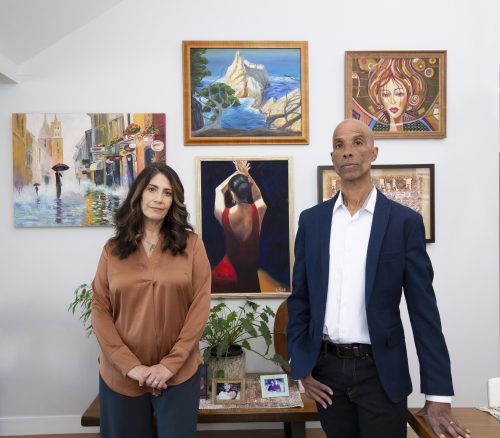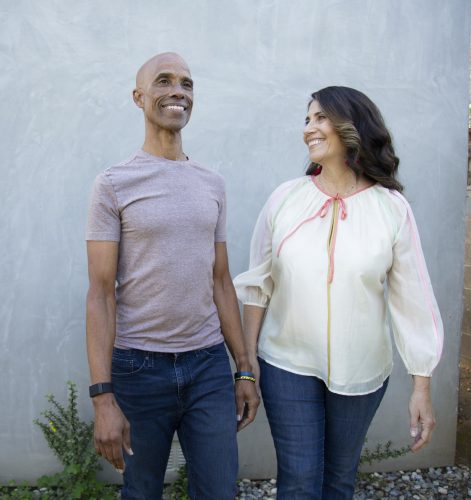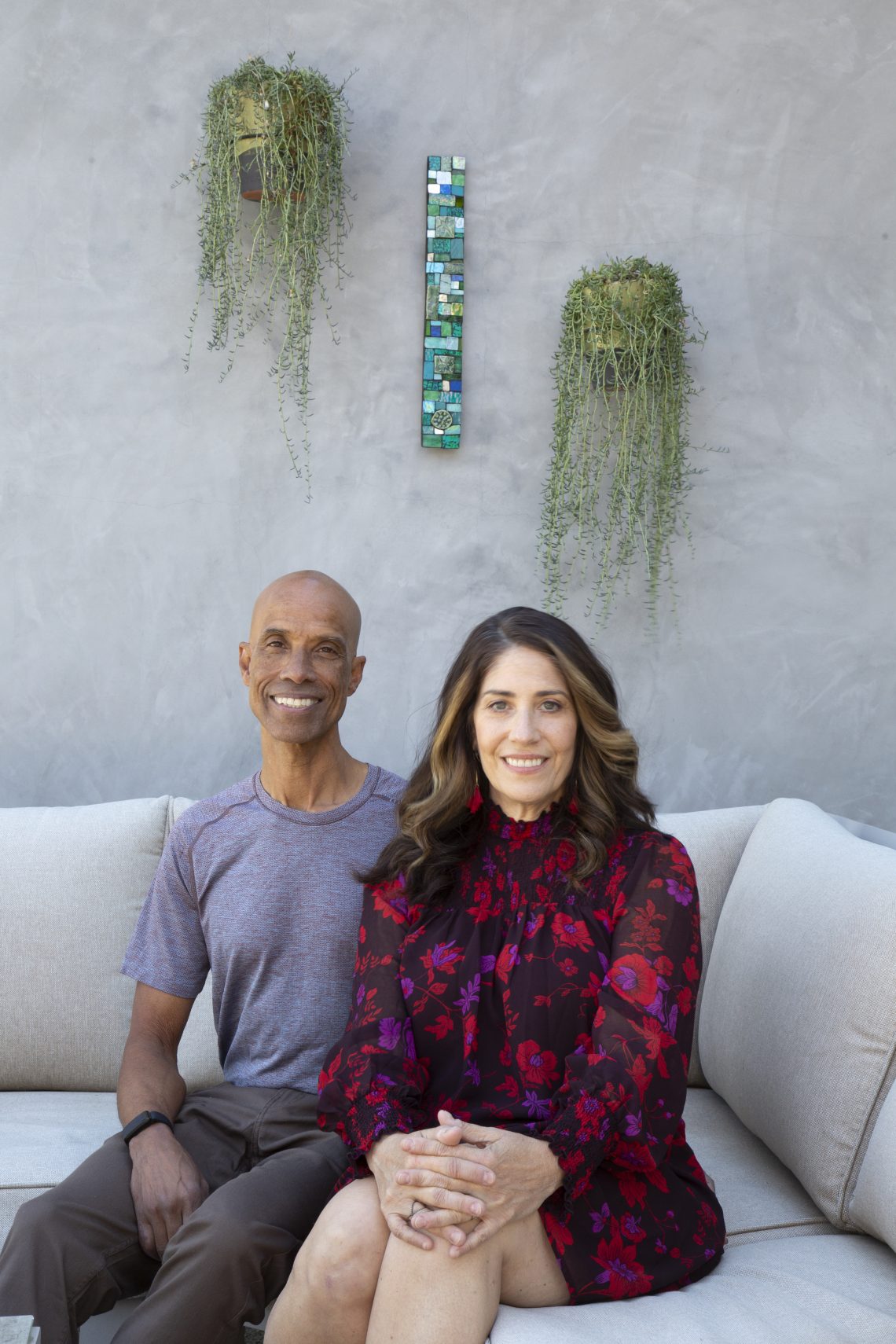How do you move forward when a piece of your soul has been extinguished? What does the path ahead look like when your life rumbles and heaves with a devastation once unimaginable? This was the agonizing reality faced by Victor and Libby Boyce after July 6th, 2019, following the death of their 20-year old son, Cameron, from sudden unexpected death in epilepsy (SUDEP). Anyone would have forgiven them for crumpling under the weight of grief, for becoming mired down in the inescapable tar of fate as it sullied and polluted their once idyllic version of a future. But that was never his intention. Not their Cam. And so, two shattered yet determined parents chose to trace the shimmering sunbeam of his earthly impact. ”He has many legacies,” smiles Victor. “He has a legacy of being a child star. He has a legacy of being a dancer. But most of all, he has a legacy of being a really good person, a philanthropist, and someone who cares deeply about other people. He was never a materialistic person. He was never a ‘look at me’ person, which is weird, considering he was an actor. His main legacy, I think, is that he was a person that cared deeply about his fellow humans. We hope that his legacy is also related to the epilepsy awareness that his unfortunate death is bringing to the world. His legacy is with his family because he was our rock, so there’s certainly a legacy within our family of living in a way that would make him proud.”
They founded The Cameron Boyce Foundation as a means of promoting epilepsy education. Cameron’s epilepsy diagnosis and untimely passing brought much-needed attention to a condition shrouded in the secrecy of shame. The floodgates of mourning also unleashed a surge of resources and community. “Obviously, we knew that he had some recognition, but it wasn’t until his passing that we realized how much he really affected people worldwide,” Victor says. “His unfortunate death brought out the fact that we have a platform to help people suffering with epilepsy, to help them come out of the shadows and get help and get services that they need and probably weren’t getting before, because epilepsy has such a stigma, and people tend to hide, or are brushed aside and disregarded for reasons we don’t quite understand. When it was determined that that was the cause of his death, people were shocked by not only his passing, but the fact that he had epilepsy. It really brought a lot of people out and we got messages from people all over the world saying, ‘We’re affected too and we didn’t know that someone as special as Cameron could have that too.’ It hit us that we could really do something about this.”
 In death, Cam’s platform has become a symbol of solidarity and a buoy for those who feel isolated by their disorder. “We are very quickly realizing that we have an edge in terms of awareness because of his name and his notoriety,” explains Libby. “And there’s been nobody bigger than Cameron that has come out as living with epilepsy. Because of that, we feel like it’s our duty to use him in a way that helps others. We are really focusing our efforts on awareness at this point, because that’s the piece of epilepsy work that we feel most aligns with us. There’s a dearth of that elsewhere. There’s the Epilepsy Foundation and there’s CURE, but CURE is really focused on research, which thank goodness, because we need that significantly. For us, it’s really about using Cameron in a way that helps others.” Cameron’s connection to the condition underscores the urgency of prioritizing treatment to those early in their epilepsy journey. “There are doctors across the country that have used Cameron’s name as a stepping stone to have these conversations with their clients, especially newly diagnosed folks, about the fact that it’s a serious disease that can be fatal and how to take care of it, how to advocate for themselves, how to arm themselves with tools, because a lot of people know Cameron, and especially because young people are the ones generally getting diagnosed with epilepsy, it helps that they know Cameron.”
In death, Cam’s platform has become a symbol of solidarity and a buoy for those who feel isolated by their disorder. “We are very quickly realizing that we have an edge in terms of awareness because of his name and his notoriety,” explains Libby. “And there’s been nobody bigger than Cameron that has come out as living with epilepsy. Because of that, we feel like it’s our duty to use him in a way that helps others. We are really focusing our efforts on awareness at this point, because that’s the piece of epilepsy work that we feel most aligns with us. There’s a dearth of that elsewhere. There’s the Epilepsy Foundation and there’s CURE, but CURE is really focused on research, which thank goodness, because we need that significantly. For us, it’s really about using Cameron in a way that helps others.” Cameron’s connection to the condition underscores the urgency of prioritizing treatment to those early in their epilepsy journey. “There are doctors across the country that have used Cameron’s name as a stepping stone to have these conversations with their clients, especially newly diagnosed folks, about the fact that it’s a serious disease that can be fatal and how to take care of it, how to advocate for themselves, how to arm themselves with tools, because a lot of people know Cameron, and especially because young people are the ones generally getting diagnosed with epilepsy, it helps that they know Cameron.”
Libby stresses that you are your own warrior when it comes to managing your treatment. “There’s not enough research dollars out there, because people aren’t really talking about it. It’s still sort of a thing you don’t talk about. People need to be focusing on arming themselves with tools, finding out as much as possible, and seeing an epileptologist. There’s such a dearth of information out there, so the individual who’s newly diagnosed really has to go out and figure it out themselves, which is not great. Our message is really about going out and being assertive with your care and pushing to find out as much as you can and get as armed as possible. There are new things that are coming out all the time. There are monitors and new medications. You can definitely advocate for yourself to be on the cusp of getting everything at your disposal, but if you don’t get aggressive and assertive, you may have just a garden variety neurologist who isn’t aware of all these things.” We must also dismantle the perpetual misunderstanding and embarrassment surrounding epilepsy. “Back in the day, people who were epileptic were thought to be witches or possessed,” Victor notes. “It goes way, way back. And it’s just ignorance. It’s just ignorance of what’s real, what’s science. People don’t want to get labeled, especially when you’re a young person and you have something that’s so hard to explain. It’s so hard to articulate to a classmate what’s happening to you if you’re eight years old. People like these children need help, and they need advocates, like my wife said. It’s going to be a long time before we can break through to the other side to get rid of that stigma. But the more we speak on it, the more we talk about it, the more we bring it out of the shadows, that’s what’s going to help. Other diseases have public figures, like Michael J. Fox with Parkinson’s, for example. Epilepsy didn’t have anything like that until Cameron passed, and so this is still in its infancy. We are just at the beginning of trying to get to where other diseases are as far as recognition goes.”
 Losing Cameron to SUDEP – a potential consequence of epilepsy that Victor and Libby had no knowledge of prior to his death – galvanized them to raise awareness for other patients. “Had I known about SUDEP, I probably never would’ve slept, but on the other hand, I think somebody should have told us about it,” Libby confesses. “I wish they had said, ‘This is not common, but this is what you need to know,’ because I think I would’ve pursued monitors or other things at that point.” It’s imperative to approach even the most unthinkable scenario with a strategy geared towards prevention, rather than living in fear of the odds. “It’s really about having as much information as possible so that you can arm yourself with alternatives. You can think about your kid moving out at 18, which is a life event that can cause more seizures due to stress and lack of sleep. You go to college and you’re partying. That can be a risk, so you have to have layers of protection, as much as possible. And you can’t do that if you don’t know all the facts. It is a little scary to talk about that and there’s a way to do it that doesn’t have to scare people, but actually gives them more confidence in terms of being secure and having plan A, plan B, plan C. It’s just super important. Many people had never even heard of SUDEP, including one of our family members who’s a doctor,” she admits with an incredulous chuckle. Simultaneously, we need to view epilepsy as the serious and sometimes deadly condition that it is to combat it with the arsenal that it demands. “If somebody dies from a seizure, they often just put ‘heart stopped’ or ‘lungs stopped.’ It’s epilepsy. That’s how they die, but because epilepsy isn’t in the death certificate, they don’t know its full impact. That’s how you get research dollars, by knowing the full impact. They say 1 in 1000 die from SUDEP, but it’s way underreported.”
Losing Cameron to SUDEP – a potential consequence of epilepsy that Victor and Libby had no knowledge of prior to his death – galvanized them to raise awareness for other patients. “Had I known about SUDEP, I probably never would’ve slept, but on the other hand, I think somebody should have told us about it,” Libby confesses. “I wish they had said, ‘This is not common, but this is what you need to know,’ because I think I would’ve pursued monitors or other things at that point.” It’s imperative to approach even the most unthinkable scenario with a strategy geared towards prevention, rather than living in fear of the odds. “It’s really about having as much information as possible so that you can arm yourself with alternatives. You can think about your kid moving out at 18, which is a life event that can cause more seizures due to stress and lack of sleep. You go to college and you’re partying. That can be a risk, so you have to have layers of protection, as much as possible. And you can’t do that if you don’t know all the facts. It is a little scary to talk about that and there’s a way to do it that doesn’t have to scare people, but actually gives them more confidence in terms of being secure and having plan A, plan B, plan C. It’s just super important. Many people had never even heard of SUDEP, including one of our family members who’s a doctor,” she admits with an incredulous chuckle. Simultaneously, we need to view epilepsy as the serious and sometimes deadly condition that it is to combat it with the arsenal that it demands. “If somebody dies from a seizure, they often just put ‘heart stopped’ or ‘lungs stopped.’ It’s epilepsy. That’s how they die, but because epilepsy isn’t in the death certificate, they don’t know its full impact. That’s how you get research dollars, by knowing the full impact. They say 1 in 1000 die from SUDEP, but it’s way underreported.”
The Cameron Boyce Foundation is flourishing more than ever. Victor and Libby recently hosted the second annual Cam For A Cause in a display of collective support while raising money for further research into epilepsy. “That was really amazing,” beams Libby. “We’re still infants in this world, but it’s an opportunity for us to share what we’re doing. It’s an opportunity for my husband and I to be embraced by our village, which is really special for us. More importantly, it’s an opportunity to bring in sponsors and get people more involved in our efforts. It was good and next year we hope we’ll be even stronger and better and bigger and bolder.” They are also devoted to spotlighting their son’s most cherished philanthropic endeavors. “He was very involved with the Thirst Project, which brings clean water to third world countries. We are very involved with that agency and we donate to them every year. Something that we feel passionate about as well is bringing the arts to young people. We’re involved with different agencies and organizations that are all about kindness and helping youth in any way we can. Get Out the Vote and all of those things are very important.” Victor affectionately recalls Cam’s commitment to cheering up sick kids during their hospital stays. “Even while dealing with his epilepsy, he was all about his causes and helping other people. It was never just about him. He would go visit children in the hospital. He would be scheduled to visit four or five kids, and he would just visit the whole floor, going from room to room to room, just to bring joy. People were shocked when he would walk in the room. He realized his impact and used it for the better, not to benefit himself, but to benefit others.”
A father’s adoration leads the way forward. “I’ve always said that my feet are bigger than Cameron’s, but I could never fill his shoes. So carrying his torch is immense. It’s something I could probably never live up to, but we try every day. We understand that there was only one Cameron and now that he’s left this earth, we just have to keep his legacy alive and keep doing what we think he would do. That’s a big ask, but that’s what we do. I think about that every day – what would he want, what would he expect of us? It’s just something that’s in my heart to direct me.” Libby takes comfort in sensing that her son would surely urge her towards an everlasting happiness. “All we have is his sense of purpose. That’s what drives me. Not just in helping others, but in trying to enjoy life, because that’s what he would want for us. He would not want us to put our head in the sand, not at all.” With heavy, echoing footsteps, Libby, Victor, and all those who knew him will examine and amplify a memory left glowing in the ether, as Cameron’s spirit continues to make the world a little brighter than he left it.
Read more Celebrity Interviews on ClicheMag.com
Victor and Libby Boyce Lovingly Steward Cameron’s Legacy Through The Cameron Boyce Foundation. Photo Credit: Larry Hirshowitz. Glam: Blondie for Exclusive Artists.



